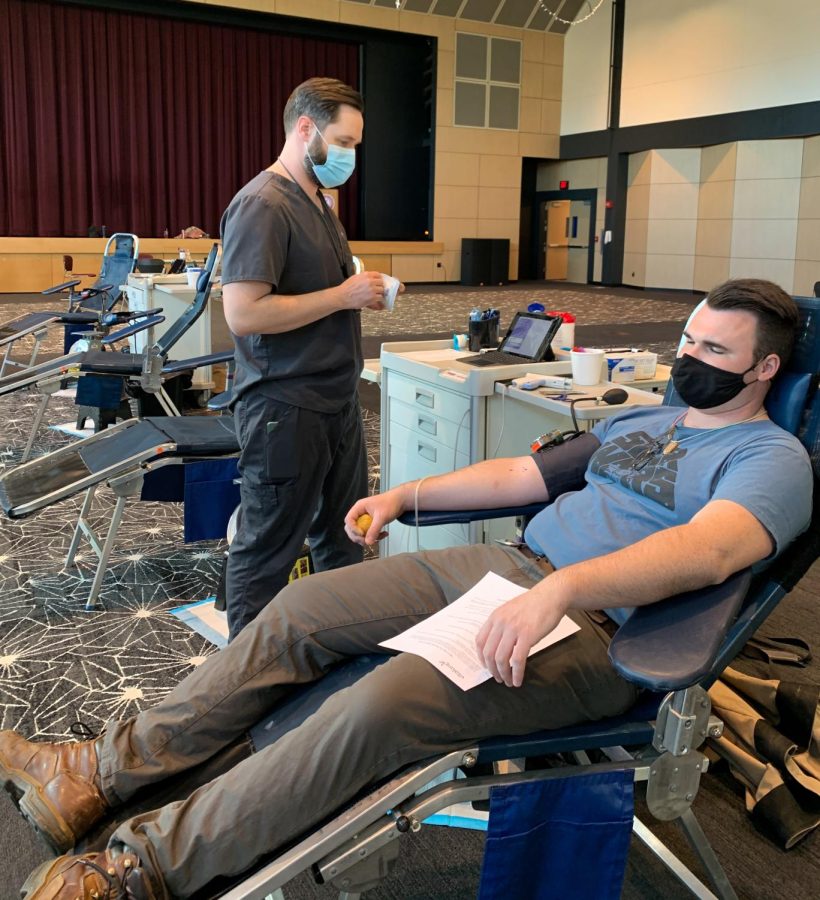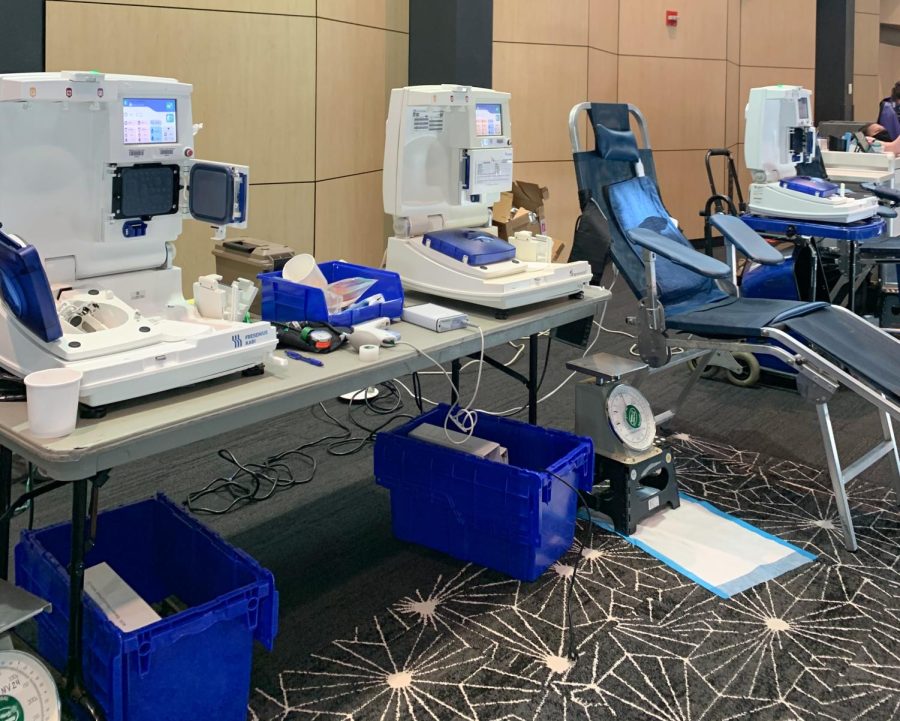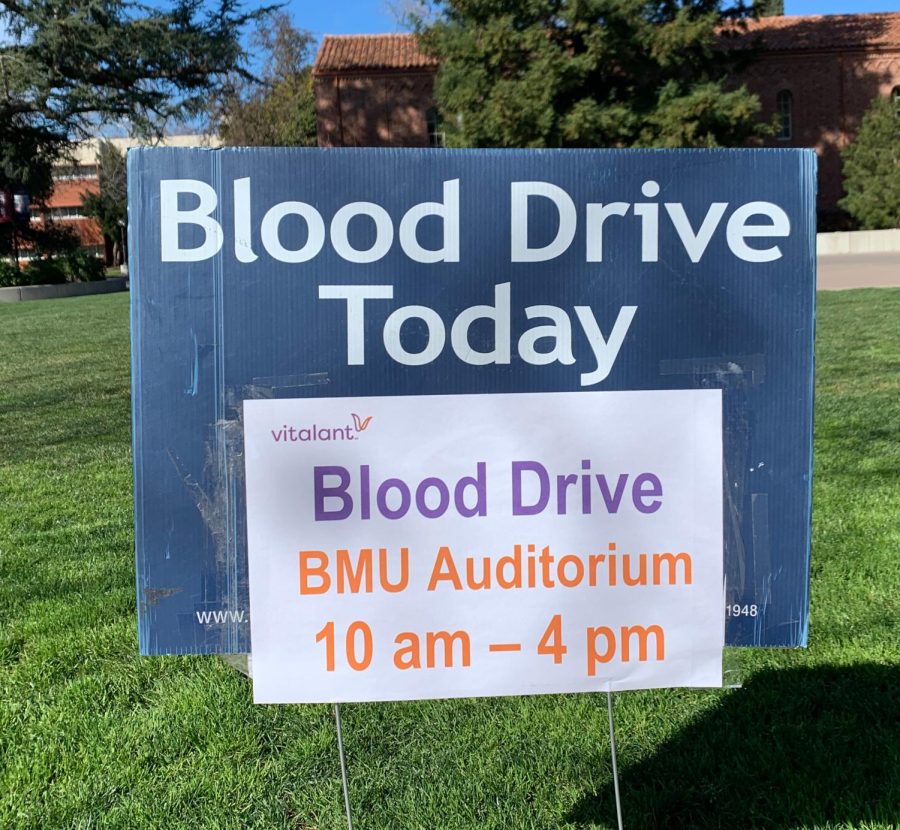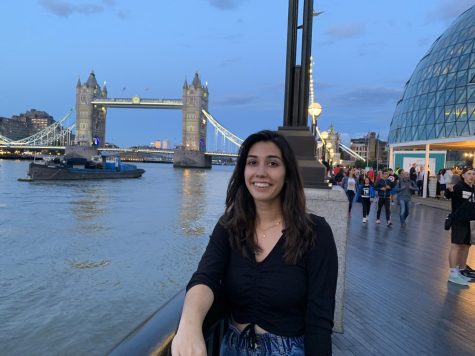Due to a nationwide blood shortage, Chico State Staff Council asked students and faculty to donate blood at the monthly blood drive on Feb. 9, in the Bell Memorial Union from 10 a.m. to 4 p.m.
Participants were required to wear a face covering and provide a photo ID. Appointments could be made directly with the local blood bank, Vitalant, however walk-ins were welcome.
Blood donations are provided to local hospitals and given to trauma patients, cancer patients and others who are in need of blood.
“Right now, supplies are at critical levels,” said Mary Bowman, administrative support coordinator. “So it’s important that we hold these on a monthly basis and encourage students, staff and faculty to donate and give back.”

According to Amy Fitzgerald, Vitalant’s donor recruitment representative, the blood supply has been at a two-year low.
“We’ve had a lot of blood drives and appointments that have been canceled due to what’s been going on with COVID,” Fitzgerald said. “Also, just the uncertainty about whether or not they could donate.”
Regardless of vaccination status, Fitzgerald said anyone who’s free of COVID-related symptoms is able to donate blood. Donors must also weigh at least 110 pounds and be over the age of 17, but 16-year-olds can donate with a Parent Consent Form.
“There’s about 62% of the population that’s eligible to donate blood,” Fitzgerald said. “Only 3% do.”
Donors can donate blood every eight weeks.

On Sept. 7, 2021, Chico State Staff Council held their first blood drive at the BMU since the pandemic began. Previously, blood drives took place with the use of blood mobiles as a COVID precaution.
In the past, fraternities and sororities hosted their annual blood drive during Greek Week in October. This is the most popular blood drive at Chico State, according to Bowman.
“In January, we collected 12 life-saving units, which is very small,” Bowman said. “At a typical two-day drive with students on campus, we can get anywhere from 50 to 75 units of blood in one day.’
Although red blood cells are in high demand, graduate student Melissa Hormann raised concern for the need of platelets.
According to the American Red Cross, platelets are cell fragments made in our bone marrow that create clots to help stop bleeding.
Unlike donating whole blood, which only takes 10 to 15 minutes, extracting platelets is a complicated process that has to be done directly at a blood bank and takes about 90 minutes.
“Platelets take a lot longer to donate because you have to stay connected to this machine,” Hormann said. “It takes all your blood out and it harvests the platelets and then delivers your blood back.”
Platelets also have a much shorter shelf life, only seven days. Meanwhile red blood cells can last up to six weeks.
Hormann also encourages more men to donate blood and platelets because they have larger veins, have a higher blood volume and don’t menstruate, which causes a depletion of iron each month.
Blood donations can be made anytime with an appointment at Vitalant. Chico State will host it’s next blood drive on March 2.
Gabriela Rudolph can be reached at orionmanagingeditor@gmail.com.








